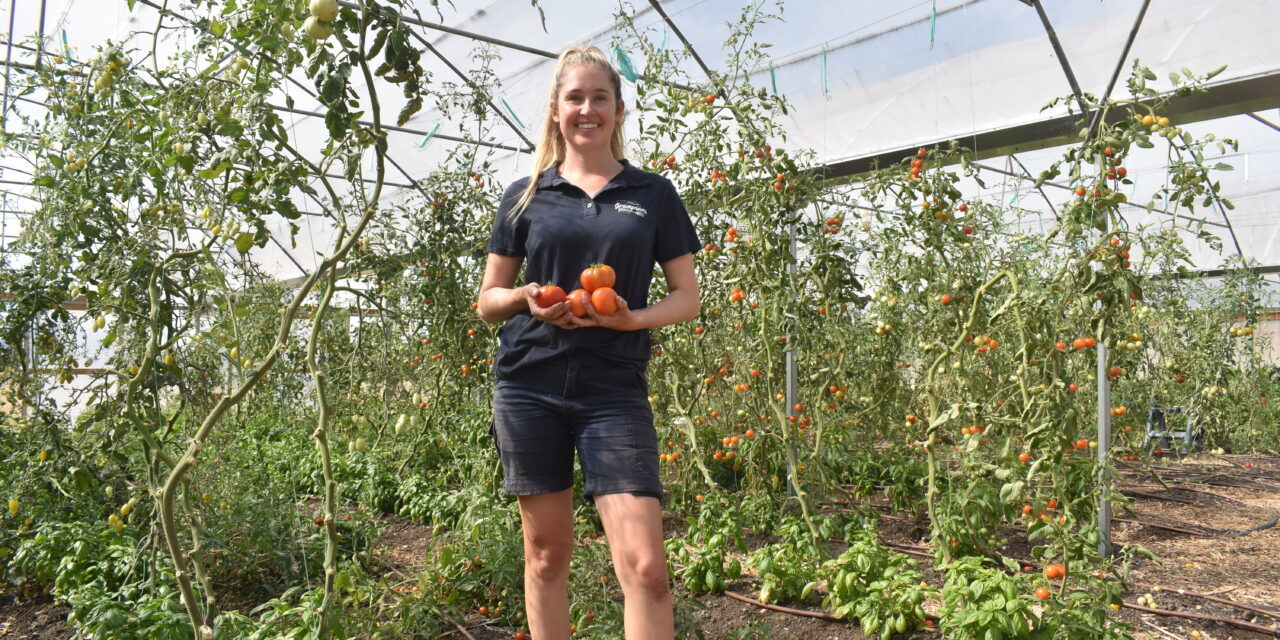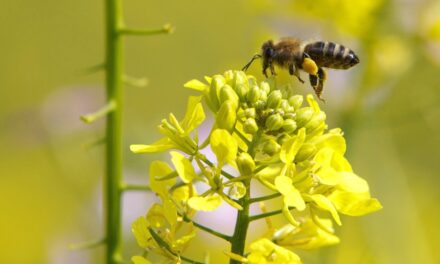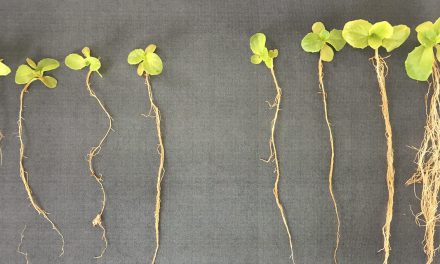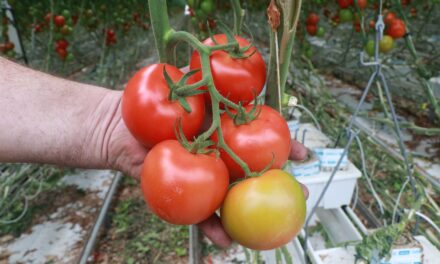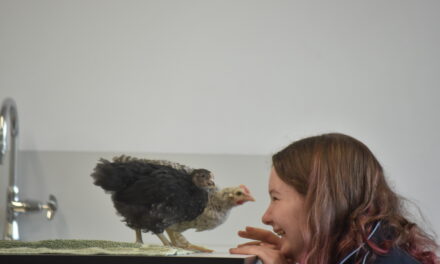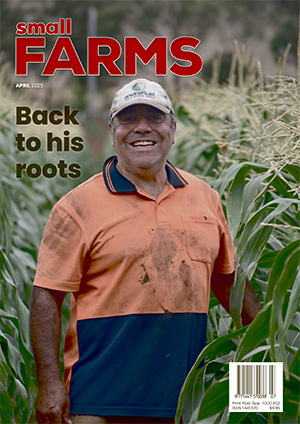Unexpected opportunities can bloom from having a social media presence showcasing your interest in gardening. RICK BAYNE has the story.
Liv Dyer was working with the City of Ballarat’s parks and gardens team and had started an Instagram page when Grampians Food Co’s founder Russell Macgugan reached out to her.
“Russ happened to see my page,” Liv said.
“He contacted me and said he was looking for a gardener and asked if I knew anyone or if I wanted to have a look.
“I thought I’d message back this stranger online and drive to the middle-of-nowhere to look at his garden. I really liked it and Russ was so passionate and driven to make it happen.”
Nearly three years later they are going strong in the business — and they’re now a couple, proving that love can bloom in the most unexpected ways.
Originally from near Wagga Wagga in NSW, Liv completed a TAFE horticulture course and secured her apprenticeship at Ballarat in Victoria.
“I had planned to work with animals but what really drew me to that was working outside. I thought I’d try the TAFE course and ended up finding plants quite fascinating,” she said.
“We had propagation classes and when my first cutting grew roots it was the most magical moment. I thought ‘I just created a new plant!’.”
Russ, a third-generation sheep farmer on a nearby property called Rannoch, had done a short permaculture course and was interested in growing sustainable food.
In 2020 he met a couple who wanted to set up a market garden. Russell had a 1.2-hectare piece of land being used for Merino sheep grazing that could be converted.
Over about six months, together they set up Grampians Food Co and had six months of production before losing their gardener.
“They had a really good vision for what they wanted it to look like and established strong values at the start,” Liv said.
“It was a no-till, permanent-bed system where you’re valuing and nurturing the soil to grow the plants.”
In the time between gardeners, Russ tried to keep it going but they have full-time jobs and needed a full-time gardener.
When Liv arrived, Grampians Food Co — based just outside of Dunkeld at the south end of the national park — she had a challenge ahead with the site overrun by weeds.
Russ is passionate and helps when he has time but he’s also a wool and livestock agent and helps on the sheep farm.
After six months of not much attention, the garden was a bit of a mess when Liv arrived.
“I just got in and started weeding,” she said. “I panicked a bit and thought I couldn’t get it under control.”
With Russ’s help, bit-by-bit it came together, with a focus on implementing sustainable systems, such as heavy mulching and heavy composting to suppress the weeds.
“I came out during winter so I had time before our main growing season to get some systems in place,” Liv said.
“By early spring, we started getting things planted and putting things out on the farm stand. For the most part, vegies are quick growers.”
Although relatively inexperienced, Liv, 27, was given a lot of autonomy — though she always sought approval.
“I went basic, doing lots of tomatoes and cucumbers and summer favourites that produce quite heavily,” she said.
Salad mix was another early winner, though a new mix is proving even more popular.
“Everyone loves it,” Liv said.
“People value that it lasts so long. We’re making bigger bags of it and they’re getting two weeks of freshness out of it.
“It encourages people to come back when they knew their vegies are going to last a bit longer.”
The land is good for growing vegies. “We’re very lucky where we are,” Liv said.
“Close to the mountains the soil gets quite sandy but we have heavy clay soils with a lot of nutrients to unlock.
“We use a deep broad fork to aerate our soil rather than tilling. Over the time that I’ve been here, I’ve seen a dramatic difference in how the soil is alive now compared to what it used to be.
“We used to hit clay straight away, now there are a few layers before you hit that clay, which is great to see.”
Only about a third of the area fenced off for the market garden is actively being used, allowing room for expansion if needed.
They are community-focused, giving local people access to fresh food with a popular store front.
They also sell as a monthly Hamilton market and are supported by several local restaurants, including the Royal Mail in Dunkeld and Bunyip in Cavendish.
“We wouldn’t have made it as far as we have without them,” Liv added.
The business also grows and sells flowers, which Liv describes as her “passion project”, but they are also popular and fulfil a local need.
“They are a big seller and are something that brings joy so they are a nice thing to have in the garden.”
Liv also has an environmental perspective to the local produce.
“The floral industry is a major contributor to emissions, from production to transport. If you can source them locally, you’d doing something kinder to our earth.”
The closest similar market garden enterprise is nearly two hours away near Warrnambool.
“We’re focusing on manually growing everything and reducing our emissions,” Liv said.
“We’re trying to build something sustainable that doesn’t destroy our soils or ruin our earth.”
This season has been great for eggplants, and capsicum, zucchini, leeks, celery and herbs and all growing well.
Chilli is packing a punch, the garlic is still strong, pumpkins are about to be harvested and spaghetti squash, not common in the region, is also a highlight.

